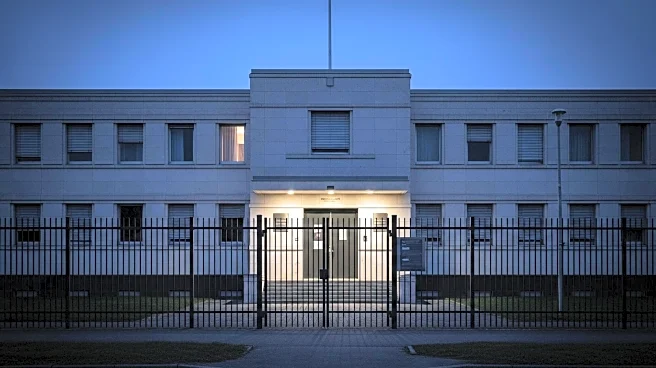What's Happening?
The United States government has officially entered a shutdown phase after Congress was unable to pass a funding bill before the midnight deadline. This development was reported during a special broadcast by CBS News, anchored by Jessi Mitchell. The failure to reach a consensus on the funding bill has resulted in the cessation of various government operations, affecting numerous federal agencies and services. The shutdown is a consequence of prolonged negotiations and disagreements among lawmakers over budget allocations and policy priorities.
Why It's Important?
The government shutdown has significant implications for the U.S. economy and public services. Federal employees face furloughs, and essential services may operate with reduced capacity, impacting millions of Americans who rely on government programs. The shutdown could also affect financial markets, as uncertainty over government operations may lead to volatility. Additionally, the political ramifications are substantial, with both parties potentially facing public backlash for the impasse. The shutdown underscores the challenges of bipartisan cooperation in addressing fiscal policy and budgetary issues.
What's Next?
As the shutdown progresses, pressure will mount on Congress to negotiate a resolution. Lawmakers will need to find common ground to pass a new funding bill and restore government operations. The situation may lead to increased political maneuvering, with each party seeking to leverage the shutdown to advance their policy agendas. Public opinion and media coverage will likely influence the pace and direction of negotiations. The outcome will have lasting effects on the political landscape and future budgetary discussions.










